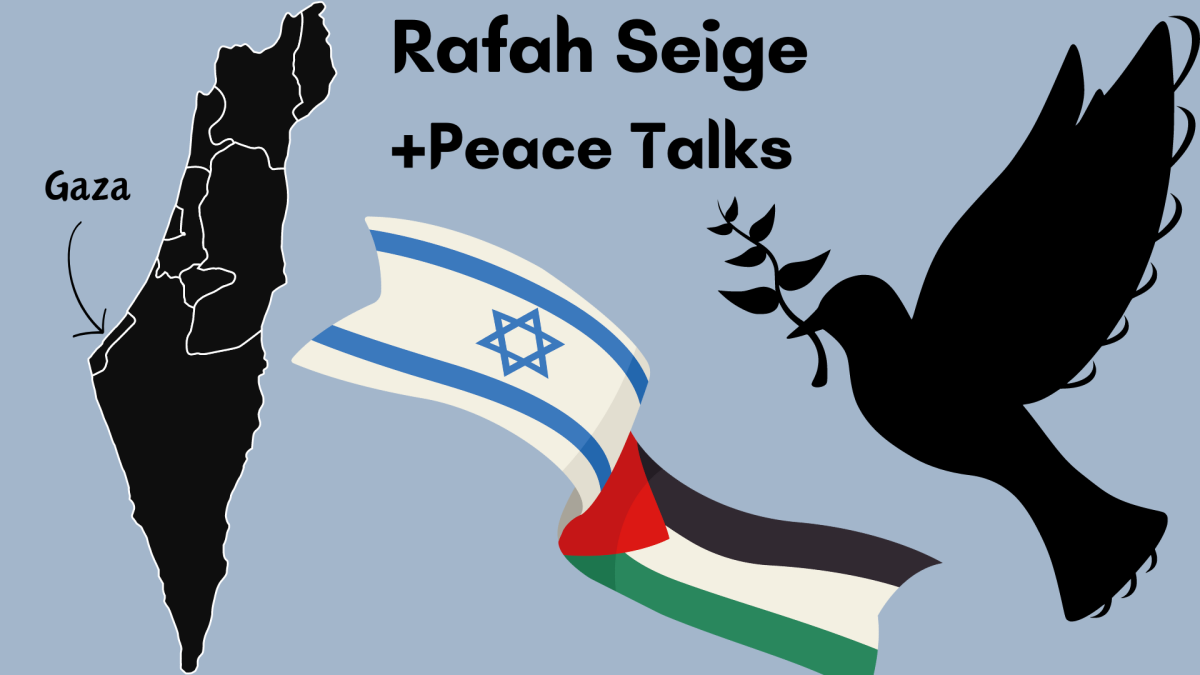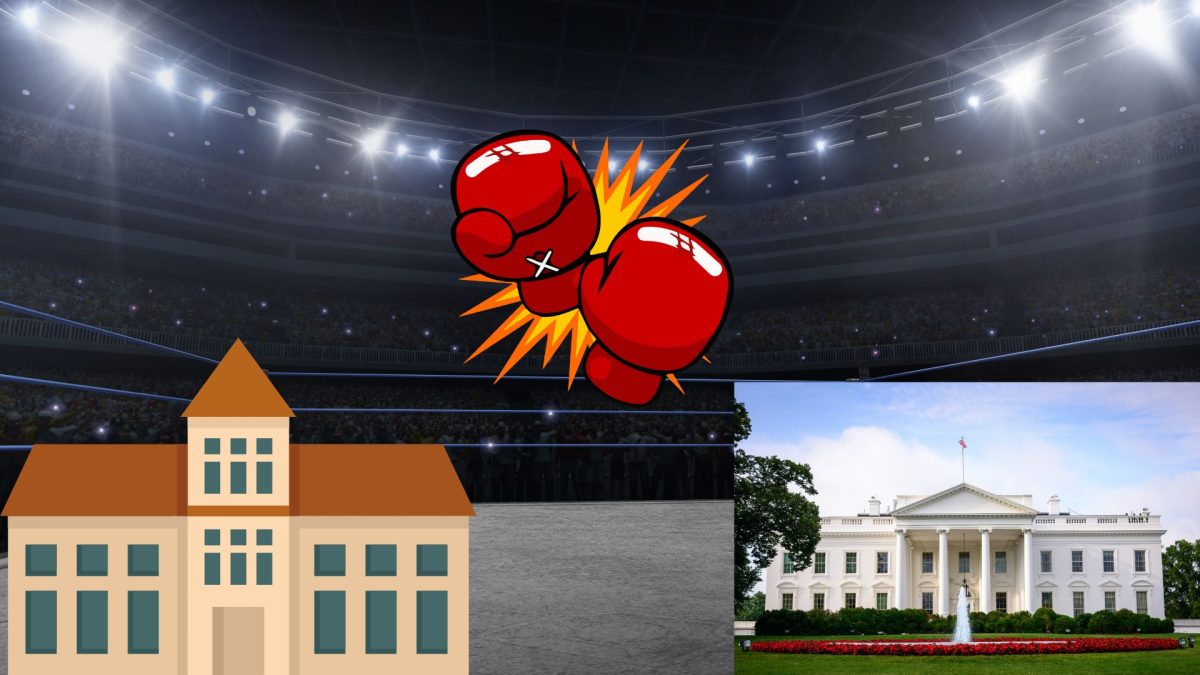The Israeli Defense Force (IDF) is entering Rafah, in the south of Gaza, after previously having taken operational control of the Palestinian side of Rafah’s border crossing between Gaza and Egypt (as previously reported by the BBC). Though peace talks between Hamas and the Israeli Government continue, a state of peace remains distant, with Hamas and Israel’s government at odds.
On May 6, as per AP News, an Israeli tank brigade commandeered the side of the Rafah border crossing which lies within Gaza. According to a spokesman for the White House’s National Security Council, this is to prevent Hamas from smuggling weapons into the region. Israel’s Prime Minister Benjamin Netanyahu has spoken of this as a crucially necessary move in order to dismantle Hamas entirely. On May 12, the IDF began to proceed farther into the city. On May 13, AP News reported that 460,000 of Rafah’s residents have now fled.
Recent events in Rafah have not furthered Israel and Hamas’ current ceasefire negotiations. While generally, many believe a ceasefire should ensue as soon as possible, the parameters upon which a ceasefire can occur are widely disagreed. The most recent peace proposal, which Hamas supported, stated that the terrorist group would release 33 hostages, dead or alive, in exchange for a large number of Palestinian prisoners held in Israel. (Israel currently holds about 4,500 Palestinian prisoners. While many prisoners are convicted terrorists, 310 are being held in administrative detention, without the right to a trial.) Israeli officials declined this deal, wanting to ensure the first 33 hostages released be alive, as well as obtain a veto over which Palestinian prisoners would be released.
Nor has Israel fared well internationally. President Biden, according to CNN, is currently withholding a shipment of 2,000-pound and 500-pound bombs from Israel. This is to prevent them from being used in Rafah, whose population totals over 1 million. (An anonymous official implied that these bombs might still ultimately be delivered to Israel.) Meanwhile, the Egyptian Foreign Ministry has voiced criticism of the offensive. This is an especially worrisome development, given that Egypt has previously threatened to negate their 1979 treaty with Israel if an offensive in Rafah would push Palestinian refugees over the Egyptian border. Per the New York Times, Egypt is also believed to be preventing aid from moving toward Kerem Shalom, the region’s other major border crossing, in a bid to force Israel to end its offensive in Rafah. Per AP news, the country has also joined South Africa in asking the International Court of Justice to command Israel to end its actions in Rafah.
As reported by the BBC, the ceasefire proposal states that there would be a “temporary cessation of military operations between the two parties”. During this six-week pause in fighting, some hostages held by Hamas would be returned, Israeli forces would withdraw from certain areas of the Gaza Strip, and displaced Gazans would return to what is left of their homes. After these six weeks, the agreement mentions a “return to sustainable calm”, later defined as “a permanent cessation of military and hostile operations”.
While seemingly agreeable, simple even, this proposal exposes a plethora of nuances and difficulties that come when evaluating the conflict. The devastation and death toll in Gaza presents a clear necessity for an immediate ceasefire. However, the Israeli government worries that an immediate ceasefire would only give Hamas time to rebuild its forces and continue brutal attacks on Israeli civilians. It seems that the Israeli government will not agree to a ceasefire until Hamas surrenders or is completely eradicated.
The Israeli government does not trust Hamas to follow ceasefire promises, as Hamas broke an already existing ceasefire agreement on Oct. 7.
“Israel will not allow Hamas to restore its evil rule in the Gaza Strip, Israel will not allow it to restore its military capabilities to continue striving for our destruction,” Israeli Prime Minister Benjamin Netanyahu said. “Israel cannot accept a proposal that endangers the security of our citizens and the future of our country.”
Political and religious extremism remains a large obstacle in the journey to peace. While the future of the region remains uncertain and peace talks continue to fail, it is the hope that the region will eventually transition to a period of peace and coexistence.
















